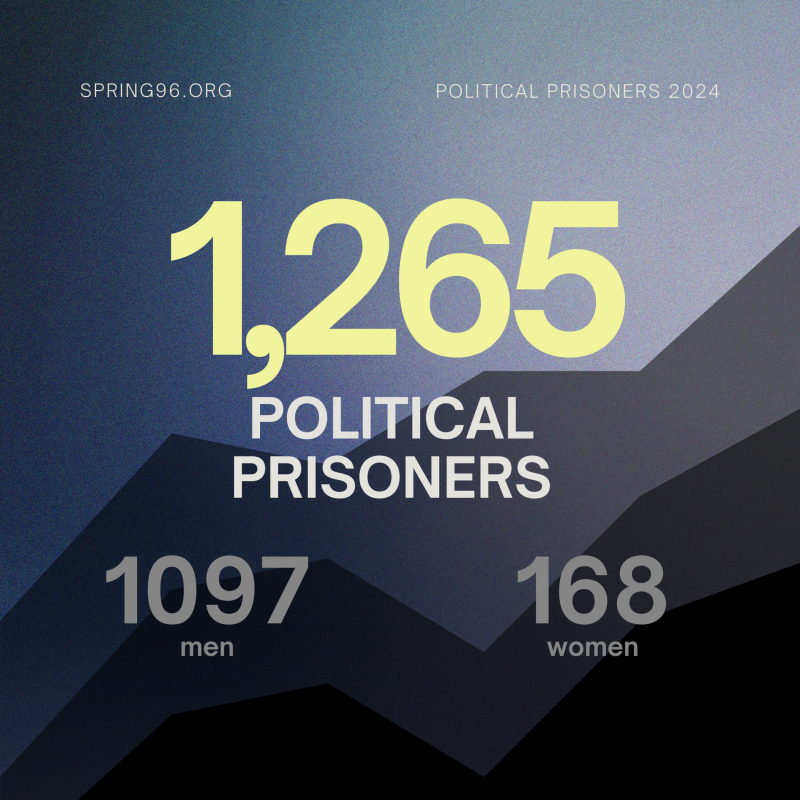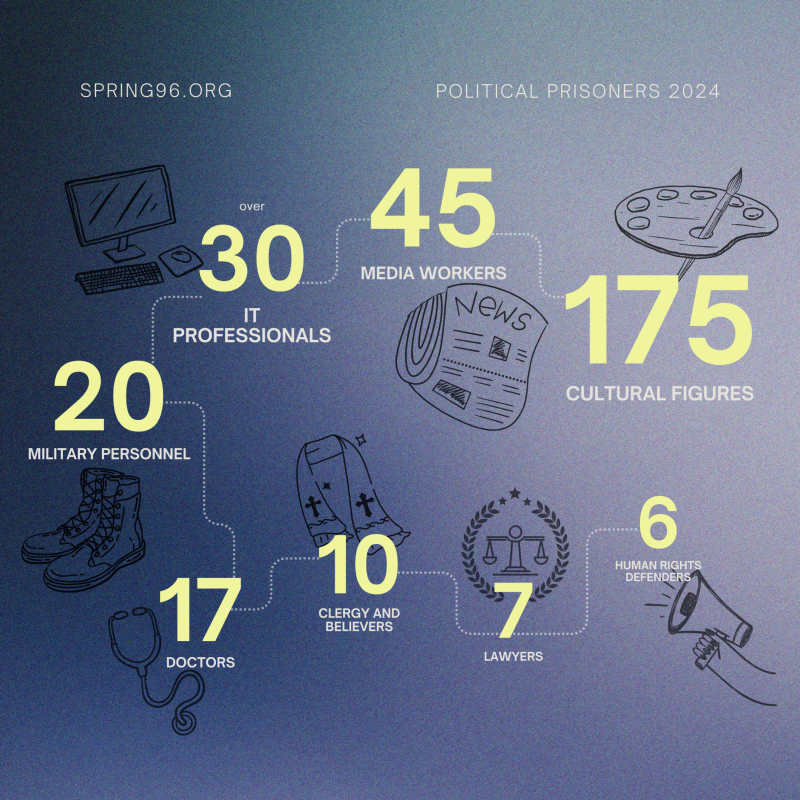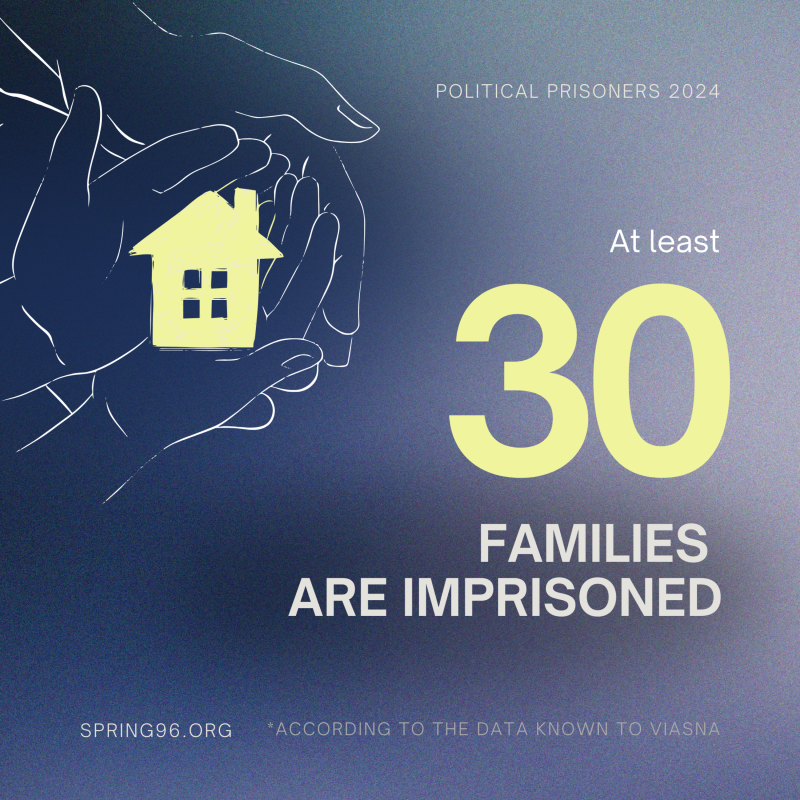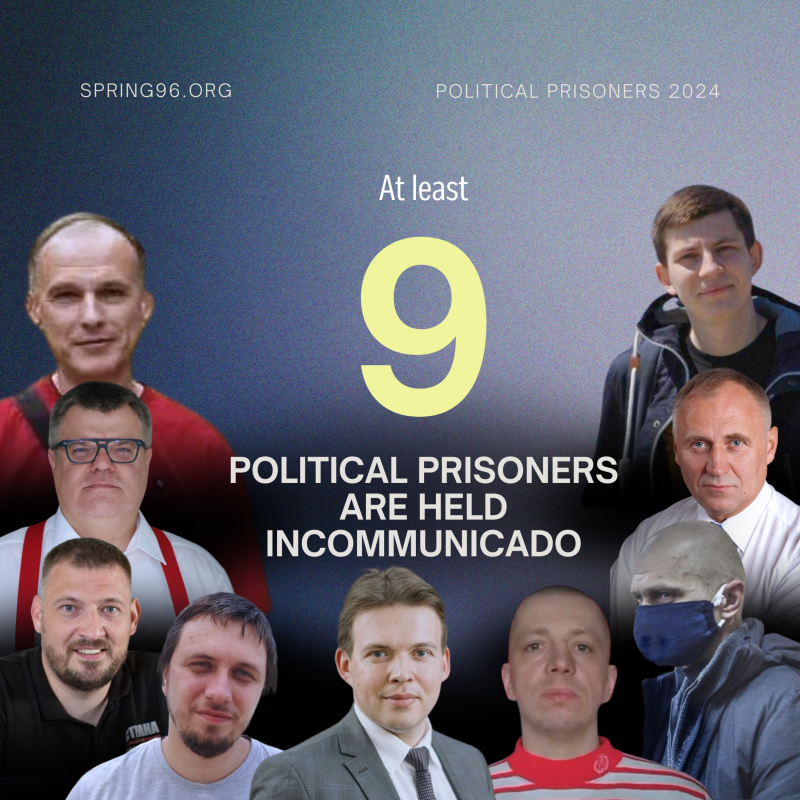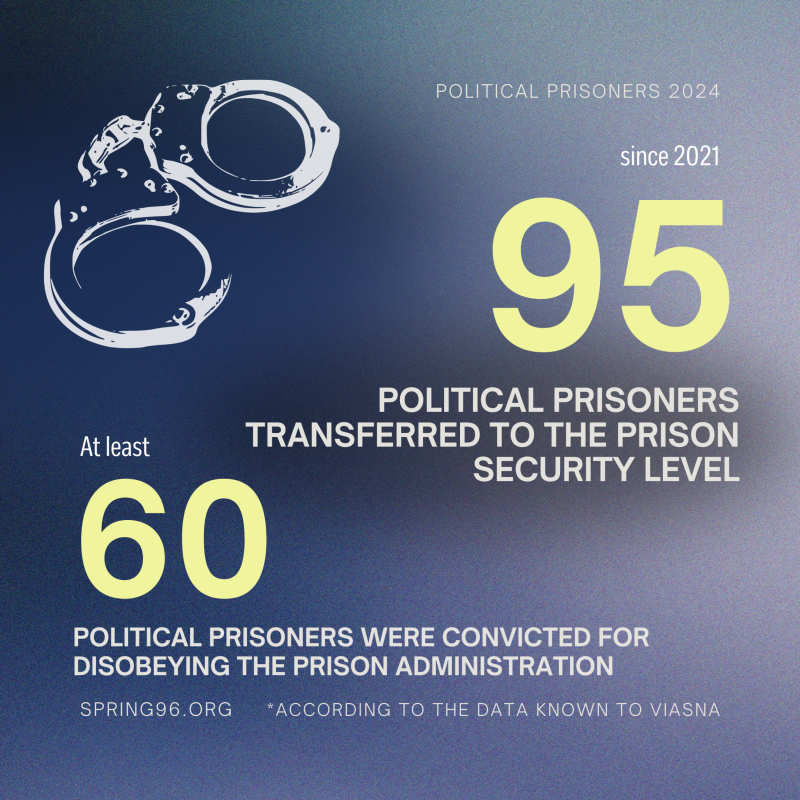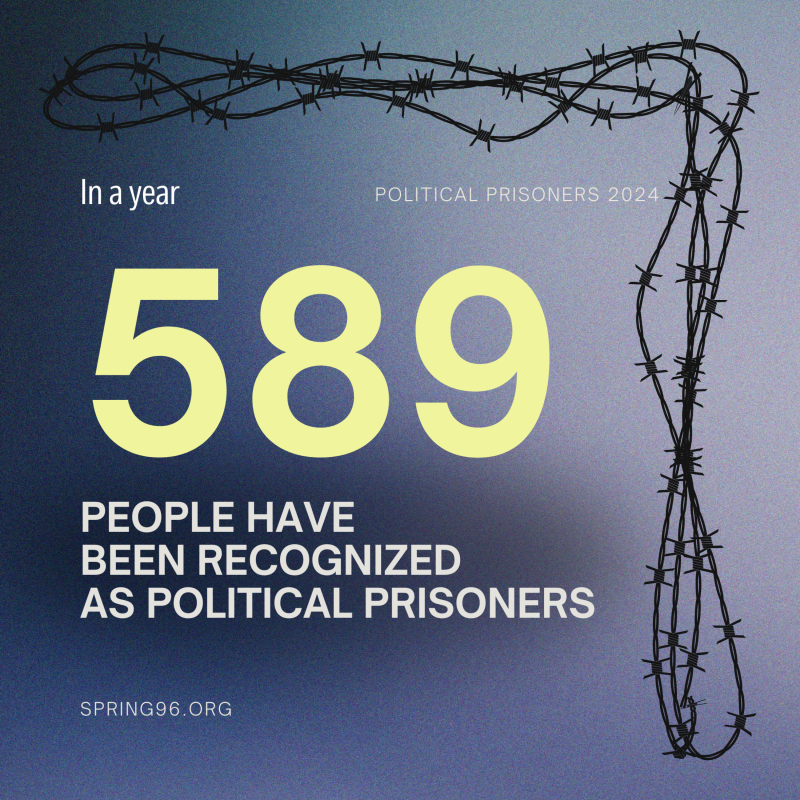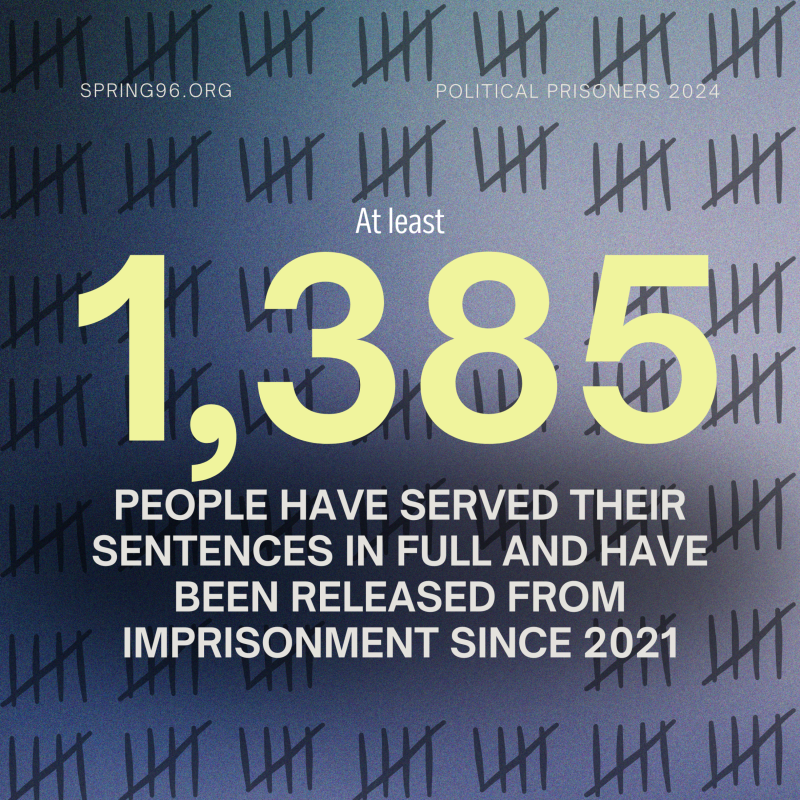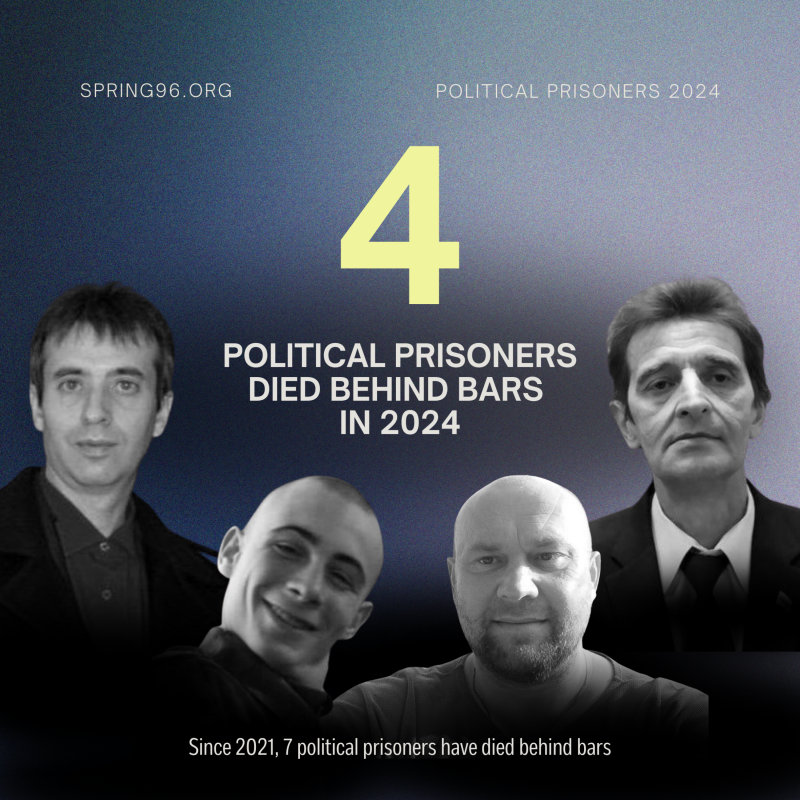The year of persecution and pardoning: figures on political prisoners in Belarus in 2024
For Belarusians, last year was marked by mass persecution for solidarity. A year when Lukashenka once again showed that he is still at war with women. Senior citizens, teenagers, cancer patients, and parents with many children — it makes no difference to the regime who is detained when the actions of Belarusians are seen as "extremism." The year 2024 was also marked by several waves of pardons with a total of 227 political prisoners released. At the same time, detentions of dozens of people continue daily throughout Belarus. The elections, which will be held in January of the new year, have triggered a series of new preventive attacks on the public sector. In addition, the situation with political prisoners in Belarus remains at a critical level. Prisoners are held in appalling conditions without access to proper medical care, are subjected to torture and beatings, and are held incommunicado for months. Viasna reports in numbers how the situation with political prisoners has changed in 2024.
As of December 29, 2024, 1,265 political prisoners are being held behind bars. Of these, 1,097 are men and 168 are women.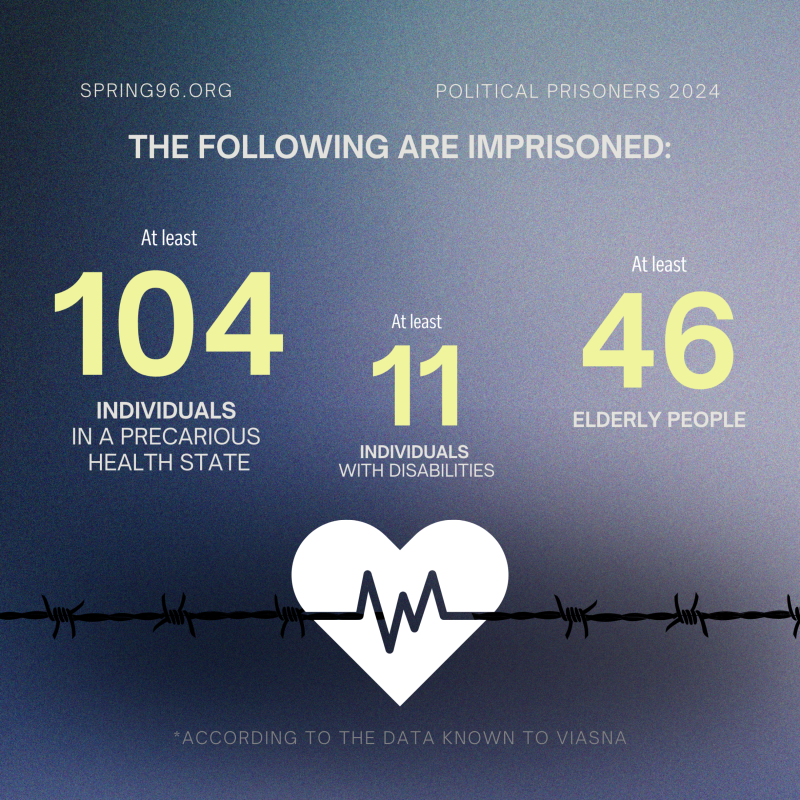
According to Viasna, at least 224 political prisoners are at particular risk. 104 people are in a precarious health state behind bars, 11 people have disabilities, 46 people are over the age of 60 (many of them have serious health problems), and 16 people have mental disorders. There are 29 mothers and fathers with many children among the political prisoners.
For people from certain vulnerable groups, incarceration is even more challenging than for others. In addition, it further worsens their health due to untimely care, lack of regular medical examinations that they need, and the unavailability of the necessary medical supplies.
Currently, the following are imprisoned:
-
45 media workers;
-
175 cultural figures;
-
6 human rights defenders;
-
17 doctors;
-
7 lawyers;
-
20 military personnel;
-
10 clergy and believers;
-
over 30 IT professionals;
There are at least 30 families among current political prisoners, which has been the maximum number of families behind bars over the past few years.
For example, Aliaksei Zachapila and his wife Liudmila Likhacheuskaya are currently imprisoned. They were placed in custody, although the couple has three children, one of whom is a minor. Through the court, money was recovered from them for child support.
Incommunicado imprisonment is a serious violation of human rights. It means that a convicted person is not allowed to correspond and visit relatives and a lawyer. At least nine political prisoners are currently known to be incommunicado: Siarhei Tsikhanouski, Ihar Losik, Viktar Babaryka,Maksim Znak, Mikalai Statkevich, Mikalai Bankou, Aliaksandr Frantskevich, Andrei Navitski, and Uladzimir Kniha.
Maryia Kalesnikava was incommunicado for more than 600 days, but in November 2024 she was allowed to meet with her father.
The increased punishment of political prisoners can be called one of the main trends of the last two years. After being transferred to places of detention, the penal colony administration begins to harass them: they are punished for far-fetched reasons, deprived of care packages and visits, and sent to a punitive isolation cell (SHIZO) and a cell-type space (PKT).
This becomes the basis for transfer to a prison security level or the initiation of a criminal case under Article 411 of the Criminal Code (malicious disobedience to the requirements of the administration of a correctional institution).
According to human rights activists, since 2020, at least 95 political prisoners have been transferred to a prison security level and new criminal cases have been initiated against 66 more for "disobeying the administration." 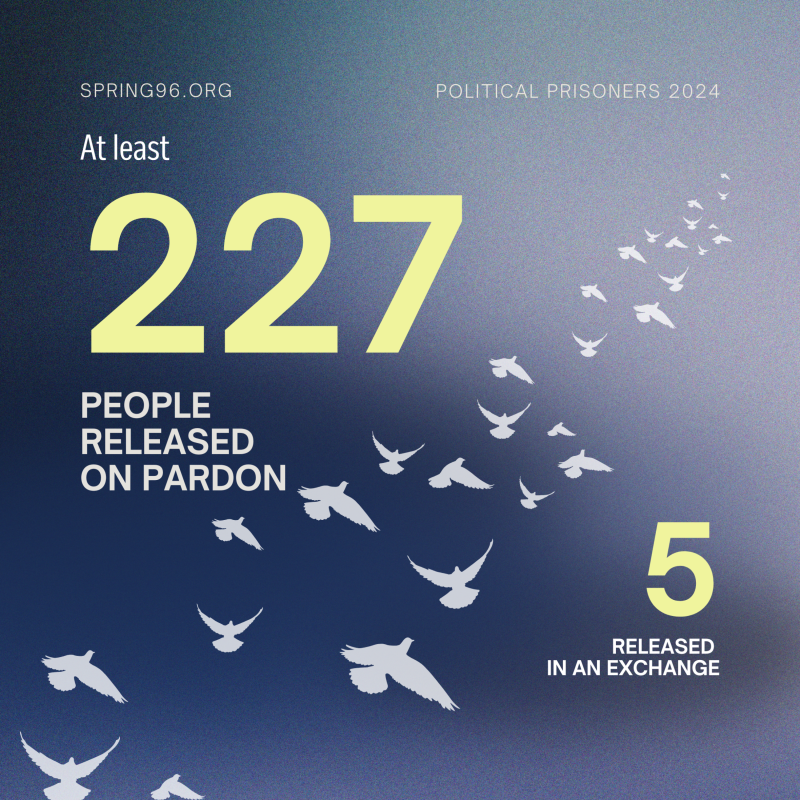
Since June 2024, Lukashenka has signed several decrees pardoning political prisoners. A total of 227 people have been released on pardon. Among them are people with serious illnesses, parents with many children, and senior citizens. Among them, 67-year-old Ryhor Kastusiou, a political prisoner with cancer Pavel Kuchynski, and journalist Ksenia Lutskina were pardoned.
In addition, five political prisoners who are Ukrainian citizens were released on exchange. Natallia Zakharanka, Pavlo Kupriyenko, Liudmila Hancharenka, Katsiaryna Brukhanava, as well as Mikalai Shvets, a defendant in the Mačuliščy sabotage case, were released.
Over the past year, 589 people have been recognized as political prisoners.
Since 2020, at least 1,385 political prisoners have served their full sentences and been released, twice as many as last year. It should be noted that some of them are subjected to repeated prosecution after their release and are detained in new criminal cases.
Last year was marked by tragic dates in the history of modern Belarus — the deaths of four political prisoners whose hearts stopped behind bars.
On the night of January 9, 2024, Vadzim Khrasko, a 50-year-old political prisoner died of pneumonia in Viciebsk colony No. 3. In August 2023, the Minsk City Court sentenced him to three years of imprisonment for several donations, although the man had a serious illness. The man was taken to the hospital when he could no longer be saved.
At the end of February 2024, Ihar Lednik, a political prisoner and a public activist, died at the age of 64. He was sentenced to three years of imprisonment for "slandering Lukashenka." The political prisoner had a disability due to heart problems, but he was sentenced to imprisonment anyway. In the colony, Ihar Lednik's health deteriorated significantly, and he underwent gastrointestinal surgery. The cause of death of the political prisoner was cardiac arrest. Doctors tried to resuscitate him but to no avail.
On April 9, 2024, Aliaksandr Kulinich died in the Brest pre-trial detention center. He was accused of "insulting Lukashenka." His trial was scheduled to take place on April 16. The death reports indicate that Aliaksandr died due to coronary heart disease. In pre-trial detention center No. 7 in Brest, journalists were told that there was a prisoner with that name, but refused to confirm the fact of death.
On November 1, 2024, it became known that Dmitry Shlethauer, a citizen of the Russian Federation, had died in Mahilioŭ colony No. 15. It happened on October 11, 2024. The death certificate of the political prisoner indicated "mechanical asphyxia" as the cause. Very often, such a record is made in cases of suicides. But the family does not believe in his suicide, as Dzmitry had plans and was going to write a petition for clemency. In the summer of 2024, the man was sentenced to 12 years of imprisonment for "espionage" and "facilitating extremist activities."
A total of seven political prisoners have died behind bars since 2021.



